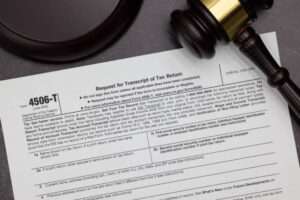The tax code is complex and ever-changing. It’s challenging to keep up with the latest changes, especially when it comes to filing your taxes. Tax season brings a lot of stress for many Americans, as they scramble to meet the April deadline and figure out if they qualify for any special deductions or credits.But understanding how inflation and the economy affects your taxes can help you file more accurately and cut down on your tax bill in future years. The rising cost of living has increased the standard deduction, removed several secondary deductions, and made qualifying for other deductions more difficult. Here’s what you need to know about how inflation and the economy affects your taxes this year and going forward.
What is inflation?
Inflation is an increase in the average price of goods and services. It’s measured by the Consumer Price Index (CPI), with a change in inflation being expressed as a percentage. A rise in inflation can affect every part of your life, from the food you eat to the energy you use to the taxes you pay. Inflation is often referred to as a “silent tax” because it’s an increase in prices that we aren’t necessarily aware of. The Federal Reserve has a target inflation rate of 2%. The government uses inflation to increase the tax base in two ways: Tax brackets are increased due to inflation; Taxable income is increased due to the effects of inflation on deductions and credits.
How does the economy affect taxes?
For most Americans, there is a direct correlation between their paychecks and the economy. Some of the biggest factors that affect your taxes are your income, deductions and credits. Your income is affected most directly by the health of the economy: Employment: If the economy is growing, more people will be entering the workforce and looking for jobs. This results in a higher demand for workers, which leads to higher wages. Wage growth: The average hourly wage is expected to increase by 2.7% this year, according to the BLS. This is higher than the previous year, when wages grew by 2.6%. Hourly pay: The average weekly wage is expected to increase to $964.89, up from $934.35 last year. The average monthly wage is expected to increase to $3,348.75, up from $3,197.98 last year.
Taxes and the cost of living
As a direct result of the changing economy, the standard deduction has increased. For the 2022 tax year, the standard deduction is $12,950 for single filers and married filing separately, $25,900 for joint filers and $19,400 for heads of household. The standard deduction is subtracted from your adjusted gross income (AGI), which determines your tax bracket. Because the standard deduction has increased, and therefore lowered your AGI, fewer taxpayers will be able to take advantage of deductions. The state and local tax deduction (SALT) has been reduced for many households, as part of the Tax Cuts and Jobs Act. For individuals living in states with high taxes, like New York, California and New Jersey, they’ve seen the biggest decrease in SALT deductions. The median cost of renting in the U.S. has reached a new high of $1,451, according to Zillow. The cost of home ownership is also rising, and has reached a 10-year high. This increase in the cost of living has led to a higher standard deduction for many households, but it has also led to the removal or reduction of some common deductions.
Taxes and wages
Another major factor affecting your taxes is the growth of your wages. This is the amount of money you make as an employee each year before taxes are applied. The economy affects wages in two ways: Job growth: More people are employed, leading to more competition for jobs. This increased competition means that employers need to offer higher wages to attract and retain the best workers. Hourly pay: The average hourly wage is expected to increase by 2.7% this year, according to the BLS. This is higher than the previous year, when wages grew by 2.6%.
Taxes and investments
In addition to wages and the cost of living, the health of the economy can affect how much you owe in taxes this year. One of the biggest changes made to the tax code is the removal of many deductions for investment-related items. These include the elimination of miscellaneous itemized deductions, reduced deductions for investment-related interest, elimination of the capital gains exclusion on assets held more than one year, and reduced deductions for health-related expenses and tax-preferred accounts. These changes have made it more difficult for households to qualify for these deductions. However, they have also increased the amount of taxes you must pay on investment income. Taxable income is increased by the amount of investment-related deductions and credits that you claim. The more you can reduce your taxable income, the less you will pay in taxes.
Bottom line: How the economy and inflation affects your taxes
The rising cost of living has led to a higher standard deduction, but it has also eliminated or reduced many common deductions. This has made it more difficult for households to qualify for deductions, especially if their incomes are high. The health of the economy has led to higher wages, which has increased taxable income for many households. Investments have grown in value, resulting in more taxable income for households with investment income. The combination of these factors has led to an increase in the amount of taxes that many households have paid. Fortunately, there are ways to reduce your tax bill.




